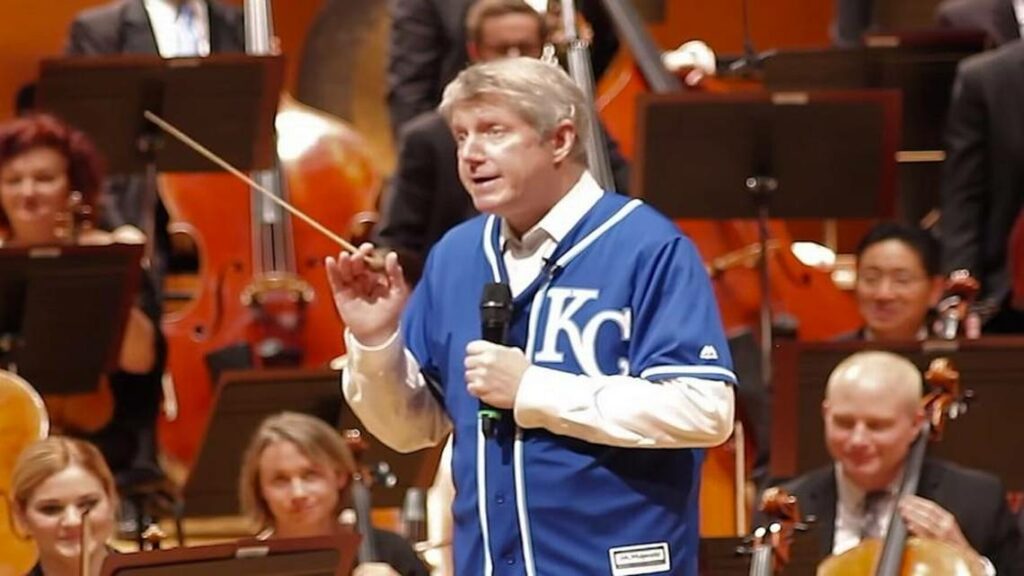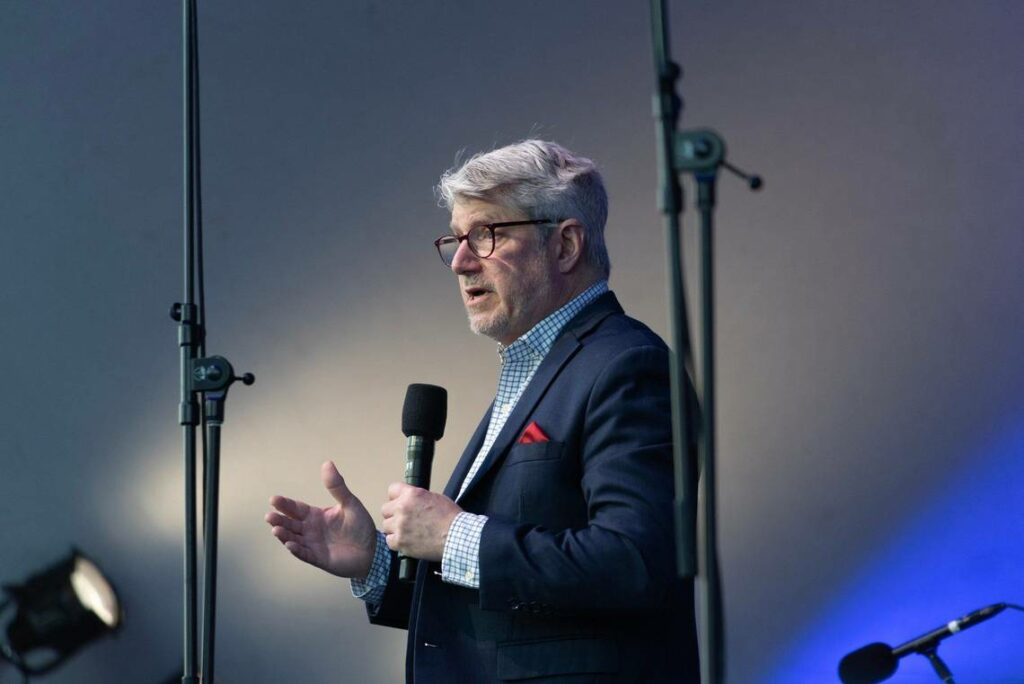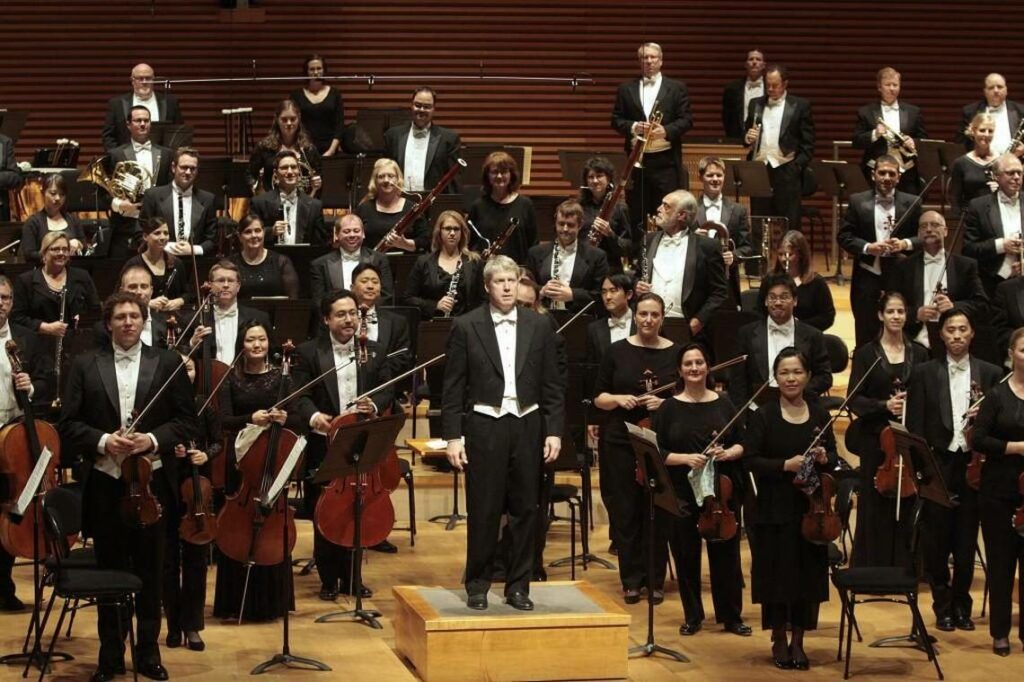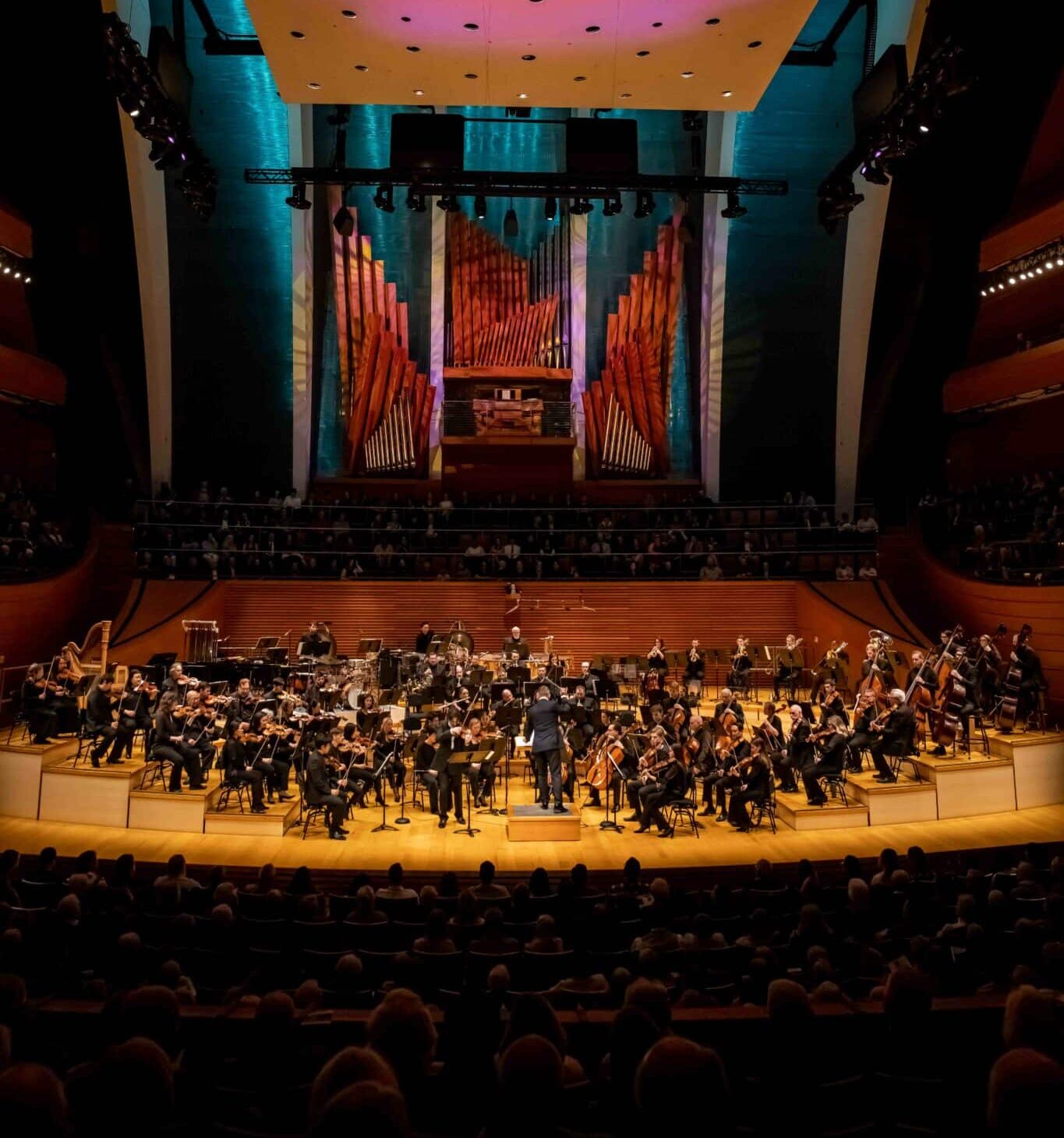‘Quite a ride’: Bidding farewell, Michael Stern looks back on 20 years with KC Symphony
By Patrick Neas | Special to The Star
THE KANSAS CITY STAR | JUNE 14, 2024

After a remarkable 20-year run as music director of the Kansas City Symphony, Michael Stern will conduct his farewell concert with the orchestra June 21 to 23 at Helzberg Hall.
The program is made up works that are personally meaningful to Stern, including Mendelssohn’s Overture to “A Midsummer Night’s Dream,” Samuel Barber’s Symphony No. 1 and Jean Sibelius’ Symphony No. 2.
Unlike almost every other Kansas City Symphony concert, this one will feature no soloists. Stern says he wanted to focus on the orchestra itself.
“We’ve been on quite a ride for 20 years, and that’s a long time,” Stern said. “We had a season where I specifically wanted to focus on the musicians, their virtuosity, their creativity. After all, when you build an orchestra over time, you can’t do it without a huge team of people, and first and foremost it’s the cooperation, complicity and ability of the musicians themselves. So I wanted it to be just us.”
Stern will open the concert with the spritely Overture to “A Midsummer Night’s Dream.” Mendelssohn wrote the overture when he was just 17 years old, and it’s a masterpiece in miniature. It musically depicts all of Shakespeare’s characters, from the fairies to the hee-hawing, donkey-headed Bottom.
“‘Midsummer Night’s Dream’ is the first piece I conducted as part of the search,” Stern said. “I had conducted a concert substituting for Anne Manson (the symphony’s former music director), and then they invited me back, and this Mendelssohn overture was the very first thing that we rehearsed. I’m a sentimental guy. It’s full circle. First concert, last concert.”

Stern, who studied American history at Harvard, has long championed American music. He even founded the IIRIS Orchestra in Tennessee for the sole purpose of performing contemporary American music. So it’s no surprise that a work by Samuel Barber is making an appearance.
“The Barber is an American work that I’m close to,” Stern said. “It’s a masterpiece, and it’s a very forward looking piece, but it’s also rooted in the past. He owed a tremendous debt to the Sibelius seventh symphony when he wrote that piece.”
And that brings us to the main work on the program, the Symphony No. 2 by Sibelius. He composed the work in 1901 not long after his nationalistic anthem “Finlandia,” Sibelius declared, “My second symphony is a confession of the soul.”
“It is such a powerful statement of how music can have an effect in the world, which is all that we’ve tried to do for the past 20 years,” Stern said. “Sibelius basically changed the hearts and minds of an entire nation. This second symphony was like a rallying cry for the Finnish people at a moment when they were resisting Russian aggression, which is pertinent for our times. It’s one of the most extraordinarily powerful and beautiful pieces ever and a piece close to my heart.”
As he concludes his 20-year run, Stern reflected on some of the high and and low points of his time with the symphony. He was named “music director designate” for the 2004-2005 season and officially took the post in 2005.

Among the highs were the extraordinary number of new works he conducted, including many that were commissioned by the orchestra.
“Adam Schoenberg, Jonathan Leshnoff, we had wonderful pieces by a lot of people and made some wonderful recordings,” Stern said. “We lived within our means, while pushing the envelope, and, in the process, we transformed the orchestra and, by extension, transformed the orchestra’s role in the city. It’s no secret that the Kansas City Symphony in 2003, when I first conducted them, was nowhere near what it is now.”
Stern also saw the symphony move into its new home in 2011, Helzberg Hall in the Kauffman Center for the Performing Arts.
“We opened a new hall that is the envy of everyone,” he said. “We went from maybe the middle of a Group Two orchestra to a Group One orchestra. And there are lots of people around the country, in and out of the music world, who have taken note of what we’ve done.”
But Stern faced challenges, too, especially during the pandemic years.
“COVID was cataclysmic, but in 2008, the market crashed, and we had to retrench and change some plans and refocus,” Stern said. “It delayed the opening of the hall and had all sorts of ripple effects. But the orchestra never lost sight of what’s important. We cut things, but we never cut the musicians. We were always intact, and that really made a difference.”
Now Stern is ready to pass the baton to German conductor Matthias Pintscher, who will bring a distinctly European perspective after Stern’s deeply rooted Americanism.
“He’s an outstanding conductor,” Stern said. “Most of all, he has imagination and ideas and a dedication to the cause of music. He’s not coming to conduct concerts, he’s coming to build something. The transition is happening just the way it was supposed to. It points to a really positive and brilliant future for the orchestra.”
But Stern isn’t riding off into the sunset. Music will continue to be central to his life.
“It is true that I don’t have another orchestra right now to take over as music director, but between guest conducting and summer festivals, I’ll have a little bit more time to reflect and think,” he said. “I am going on Medicare, but I’m not retiring.”
Ever the idealist, Stern knows he still has a lot to give.
“The world needs advocacy for the arts and music now with more urgency than ever,” he said. “It is not the time to give up. We are in trouble in this country in a lot of ways, and I think you must stay true to the things in which you believe, and if you can make some good happen, that’s not terrible.”
